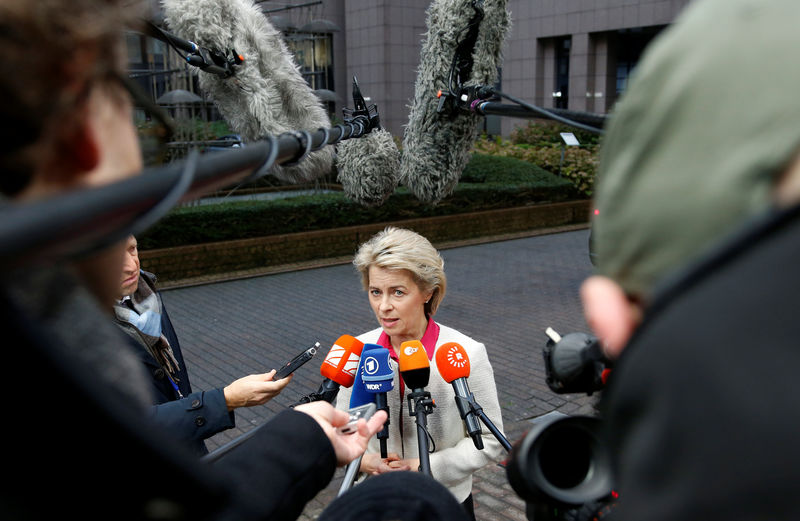BERLIN (Reuters) - German Defence Minister Ursula von der Leyen urged Britain on Thursday to stop blocking moves to strengthen defence cooperation among European Union members, saying the efforts were urgently needed to deal with changing threats.
"The biggest resistance is coming from the British," von der Leyen told weekly newspaper Die Zeit. "And there we ask for fairness: Whoever is leaving the EU should not in their last metres block the caravan."
Britain, whose citizens voted in June to quit the EU, has expressed concern together with Poland and the Baltic states that moves to bolster European defence cooperation could weaken the NATO alliance.
Von der Leyen said Germany viewed U.S. participation in the alliance as a cornerstone of its security, but it was now clear to Europeans that the United States would no longer "automatically compensate for European passivity."
She said the election of Republican Donald Trump could be a wake-up call for Europe to improve the efficiency of its defences and increase cooperation in the face of threats such as Islamist terrorism and Russia's disrespect for long-established borders.
"The USA will always be our most important and closest partner, but we Europeans cannot derive our strength from that of America and its will to show presence in the world, or not," she said. "Europe must decide whether it wants to shape events or be a pawn."
During the election campaign, Trump said that, as president, he might not come to the aid of countries that did not spend enough on defence, calling into question the collective security guarantee on which NATO depends.
Von der Leyen said the EU's current military structure had glaring inefficiencies, that led to the "waste of huge amounts of money," including the use of 37 different types of armoured vehicles, 12 refuelling planes and 19 fighter jets.
She said she hoped an EU summit next month would send a signal to the United States that "Europe is investing more in its common security".

But she stressed that the leaders were not focused on building a European army, saying that would require changes in treaties. "Currently there are no majority or prospects for that," she said. "I'm focused on what's doable."